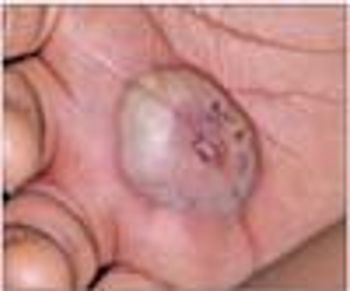
Editor-in-chief Julia A. McMillan, MD pays tribute to two retiring board members.

Seven days after birth, a female infant was noted to have 2 mandibular central incisor teeth. The teeth were firmly fixed in the gums, and the infant was growing well on breast milk. Neonatal teeth (which appear during the first 30 days of life) are about 3 times more common than natal teeth (which are present at birth), although both are relatively rare.

Adjunctive therapy with dexamethasone should be considered in selected cases of bacterial meningitis in infants and children. Dexamethasone has reduced hearing impairment in children with Haemophilus influenza type b meningitis when given with or before starting antimicrobial therapy.

In addition to term infants (born after at least 37 weeks' gestation), many hospitals currently consider late-preterm infants (born between 34 and 36 weeks' gestation) mature enough to be admitted to the well-baby nursery. Several studies, including one recently published by Young and colleagues1 from Utah, have shown an increased mortality among these late-preterm (also known as near-term) infants.

The Centers for Disease Control and Prevention (CDC) has designated November 27 to December 2 as National Influenza Vaccination Week.

ELBW preemies fed breast milk continue to have greater mental development scores.

Psychotherapy and antidepressants seem to be the most beneficial ways to treat adolescents with major depressive disorder, more than medication or psychotherapy alone.

GlaxoSmithKline (GSK) has agreed to add new language to the existing “black box” warning on its type 2 diabetes medication rosiglitazone (Avandia).

Surprisingly, practically no guidelines exist for the in and outpatient care of late preterm infants. This lack of guidance has forced hospitals to develop their own suite of care practices.

Surprisingly, practically no guidelines exist for the in and outpatient care of late preterm infants. This lack of guidance has forced hospitals to develop their own suite of care practices.

The stigma associated with psychiatric care is only one of the barriers that a pediatrician must tackle when calling for a mental health referral.


Two committees move closer to banning untested OTC meds for young children.

The author discusses a pediatrician who has pioneered lead prevention and abatement in the pediatric community.

Diabetes management * Jaundice therapy * Nutritional supplement



Prebiotic supplements * Food ads for kids * Viral bronchiolitis * ... and more

Here's a series of links that will help parents and pediatricians get kids to eat better.

The stigma associated with psychiatric care is only one of the barriers that a pediatrician must tackle when calling for a mental health referral.

An adolescent presents with several moles surrounded by white rings on his back.

A three year old presents with abdominal pain with a history of chronic abdominal distension, after laparotomy he is diagnosed with an omental cyst with features of lymphangioma.

SCHIP update * Infant hearing screening * Tinea capitis * TB regimen * ... and more

Editorial about the dearth of research devoted to the needs of infants born 34 and 37 weeks.


Surprisingly, practically no guidelines exist for the in and outpatient care of late preterm infants. This lack of guidance has forced hospitals to develop their own suite of care practices.

A 4-year-old US-born Hispanic boy presented with penile discharge and painful urination. His mother reported that he had no fever, trauma, history of masturbation, or recent travel history. She did not suspect any abuse. There had been no similar complaints in the past.

A 13-year-old girl comes to your office in tears. Her mother wants to cut off her hair.

When preparing a nursery, most parents buy bumper pads to soften the sides of the crib and to add a decorative touch. Traditional thinking has been that bumpers protect infants' heads from the hard sides of the crib and prevent arms and legs from becoming stuck between crib rails. The AAP recommends that if bumpers are used, they should be thin and firm.1 They advise parents to avoid pillow-like bumpersand to remove them when the child is pulling to stand.2 However, a study recently published in The Journal of Pediatrics may lead us to rethink what we tell parents about the dangers of decorative bedding.

As attendees crowded the Exhibit Hall during the AAP Meeting, Contemporary Pediatrics captured the crowd.